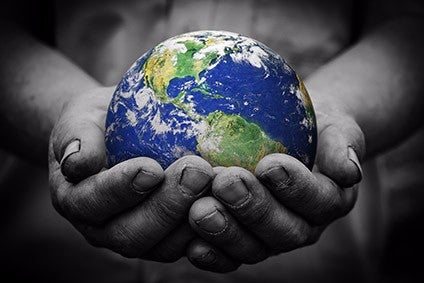
43 leading fashion brands, retailers and suppliers – including Adidas, Burberry, Gap Inc, H&M Group, Inditex, Kering, Levi Strauss & Co, and PVH Corp – are backing a new Fashion Industry Charter for Climate Action with an initial goal of reducing aggregate greenhouse gas emissions by 30% by 2030.
Launched today (10 December) at this year’s United Nations climate change conference, COP24, in Katowice, Poland, the move is seen as an industry milestone in collectively addressing the climate impact of the fashion sector across its entire value chain.

Discover B2B Marketing That Performs
Combine business intelligence and editorial excellence to reach engaged professionals across 36 leading media platforms.
Also lending their support are Esprit, Guess, Hugo Boss, Puma SE, Target, Business for Social Responsibility, Sustainable Apparel Coalition (SAC), China National Textile and Apparel Council (CNTAC), Outdoor Industry Association (OIA) and Textile Exchange, as well as global logistics company Maersk.
They have all committed to implementing or supporting the 16 principles and targets that underpin the Fashion Climate Charter.
The Charter, which is open for other companies and organisations to join, recognises the crucial role that fashion plays on both sides of the climate equation: as a contributor to greenhouse gas emissions, and as a sector with multiple opportunities to reduce emissions while contributing to sustainable development.
Aligned with the goals of the Paris Agreement to keep the global temperature increase below two degrees Celsius, the Charter contains the vision for the industry to achieve net zero emissions by 2050.

US Tariffs are shifting - will you react or anticipate?
Don’t let policy changes catch you off guard. Stay proactive with real-time data and expert analysis.
By GlobalDataIt also defines issues that will be addressed by signatories, ranging from decarbonisation of the production phase, selection of climate friendly and sustainable materials, low-carbon transport, improved consumer dialogue and awareness, working with the financing community and policymakers to catalyse scalable solutions, and exploring circular business models.
To make concrete progress on these commitments, six working groups have been established in which signatories will work to define steps for implementation.
The signatories are not waiting for these issues to be fully elaborated and have set an initial target to reduce their aggregate greenhouse gas emissions by 30% by 2030 and have defined concrete measures – such as phasing out coal-fired boilers or other sources of coal-fired heat and power generation in their own companies and direct suppliers from 2025.
“We are aware that more than 90 percent of Puma’s carbon footprint is being generated in shared supply chains. If we want to reduce carbon emissions in our supply chains, we need to work together with our industry peers,” said Bjørn Gulden, CEO of PUMA. “The Fashion Industry Charter for Climate Action provides a collective industry effort to support the goals of the Paris Agreement.”
“This charter is about getting the fashion industry united in important climate work. Our industry has a global reach and only together can we create the change that is urgently needed,” said Karl-Johan Persson, CEO H&M group. “We are happy to be a signatory of this charter as part of our ambition to become climate positive in our value chain.”
The founding signatories are: Adidas, Aquitex, Arcteryx, Burberry Limited, Esprit, Guess, Gap Inc, H&M Group, Hakro Gmbh, Hugo Boss, Inditex, Kering Group, Lenzing AG, Levi Strauss & Co, Mammut Sports Group AG, Mantis World, Maersk, Otto Group, Pidigi SpA, Puma SE, re:newcell, Schoeller Textiles AG, Peak Performance, PVH Corp, Salomon, Skunkfunk, SLN Textil, Stella McCartney, Sympatex Technologies, Target and Tropic Knits Group.
Supporting organizations include: Business for Social Responsibility (BSR), China National Textile and Apparel Council (CNTAC), China Textile Information Center (CTIC), Global Fashion Agenda (GFA), Global Organic Textile Standard (GOTS), International Finance Corporation (IFC), Outdoor Industry Association (OIA), Sustainable Apparel Coalition (SAC), Sustainable Fashion Academy (SFA), Textile Exchange, WWF International and ZDHC (Zero Discharge of Hazardous Chemicals Foundation).
Principles and actions outlined in the Fashion Industry Charter for Climate Action will be pursued and developed collectively through working groups which will be convened by the UN Climate Change in early 2019.



